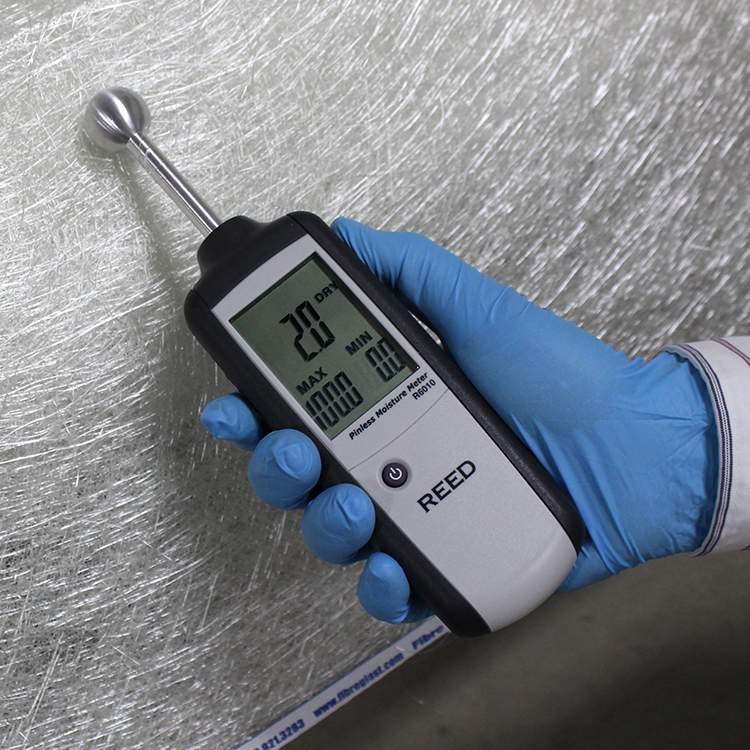How a Moisture Meter Can Aid You Maintain Optimum Conditions in your house or Office
How a Moisture Meter Can Aid You Maintain Optimum Conditions in your house or Office
Blog Article
The Ultimate Overview to Moisture Meters: A Comprehensive Summary and Exactly How They Can Conserve You Money
In the world of structure upkeep, building and construction, and numerous sectors, the relevance of properly determining dampness degrees can not be overemphasized. Moisture meters function as crucial devices in discovering and checking moisture material in materials, aiding in preventing costly damages and guaranteeing the high quality of products. Recognizing the subtleties of different kinds of dampness meters, their applications, and the possible cost-saving benefits they use can be a game-changer for professionals and services alike. Finding how these gadgets can not just streamline processes however additionally contribute to monetary savings is a journey worth embarking on.
Kinds Of Dampness Meters
One common type is the pin-type dampness meter, which gauges the electrical resistance between 2 pins inserted into a product. Pinless dampness meters, on the various other hand, use electro-magnetic sensor plates to scan a larger location without creating damages to the material's surface.

Moreover, there are likewise specialty moisture meters made for certain products like dirt, grain, or hay. These meters supply precise moisture analyses tailored to the unique residential properties of the material being examined. Infrared wetness meters determine the thermal residential or commercial properties of a product to establish its wetness content non-invasively, making them useful for applications where pin or pinless meters might not be ideal. Recognizing the different kinds of dampness meters available can help markets choose the most appropriate tool for their particular moisture dimension needs.

Benefits of Utilizing Wetness Meters
Dampness meters supply important advantages in properly assessing and keeping track of wetness degrees in diverse materials and atmospheres. One of the key benefits of using dampness meters is the prevention of possible damage created by excess dampness.
Additionally, using moisture meters can bring about raised power effectiveness. By identifying areas with high dampness levels, such as leaks or inadequate insulation, changes can be made to enhance energy preservation and lower energy expenses. In agricultural settings, dampness meters play a critical duty in enhancing plant yields by allowing farmers to keep track of soil wetness levels and make informed irrigation choices. On the whole, the benefits of utilizing dampness meters cover throughout different markets, supplying affordable services and promoting much better quality control methods.
How to Pick the Right Moisture Meter
Choosing the appropriate moisture meter includes taking into consideration essential aspects such as product compatibility, measurement variety, and calibration precision. When picking a wetness meter, it's important to guarantee that the meter is ideal for the specific material you will be screening. Various materials have differing electrical properties that can impact moisture analyses, so selecting a meter developed for your product is essential for exact results. In addition, consider the dimension variety of the dampness meter. Guarantee that the meter can detect wetness levels within the range needed for your applications. Calibration accuracy is an additional important factor to maintain in mind. Decide for a wetness meter with reliable calibration to ensure specific and regular readings. Some meters might require routine calibration modifications, so understanding the calibration procedure is very important. By meticulously reviewing these factors, you can select a wetness meter that meets your requirements and offers precise wetness dimensions for your jobs.
Correct Strategies for Wetness Meter Use

Cost Savings Through Wetness Meter Applications
Exactly how can the tactical utilization of dampness meters lead to considerable cost financial savings throughout various sectors? In the farming industry, moisture meters help in identifying the optimal time for gathering crops, protecting against over-drying or excess moisture that can affect the final product's quality.
In a similar way, in building, moisture meters help protect against expensive damages by spotting moisture degrees in structure materials, such as timber or concrete, which can lead to architectural problems check out here if not attended to quickly. By identifying trouble locations at an early stage, professionals can take rehabilitative measures to prevent substantial repair services or replacements, ultimately saving time and money.
Additionally, in the food processing industry, dampness meters are vital for keeping track of product high quality and making sure compliance with security laws. By properly determining moisture web content in food items, manufacturers here can stop putridity, maintain freshness, and reduce waste, resulting in significant cost financial savings. Overall, the tactical application of moisture meters is a useful financial investment that can cause significant expense reductions and enhanced effectiveness across various sectors.
Conclusion
In verdict, dampness meters are beneficial devices for determining and spotting dampness levels in various products. By utilizing the appropriate wetness meter and complying with correct methods, users can effectively prevent pricey problems caused by excess dampness.
Dampness meters offer as crucial devices in finding and checking moisture material in materials, aiding in stopping costly problems and guaranteeing the quality of items. Infrared dampness meters determine the thermal properties of a material to determine its wetness content non-invasively, making them beneficial for applications where pin or pinless meters might not be appropriate.Dampness meters provide very useful advantages in properly assessing and keeping an eye on moisture degrees in varied materials and atmospheres. In farming setups, moisture meters play an important function in enhancing crop returns by enabling farmers to keep track of dirt dampness degrees and make educated irrigation decisions.In conclusion, wetness meters are useful devices for determining and finding dampness degrees in numerous products.
Report this page